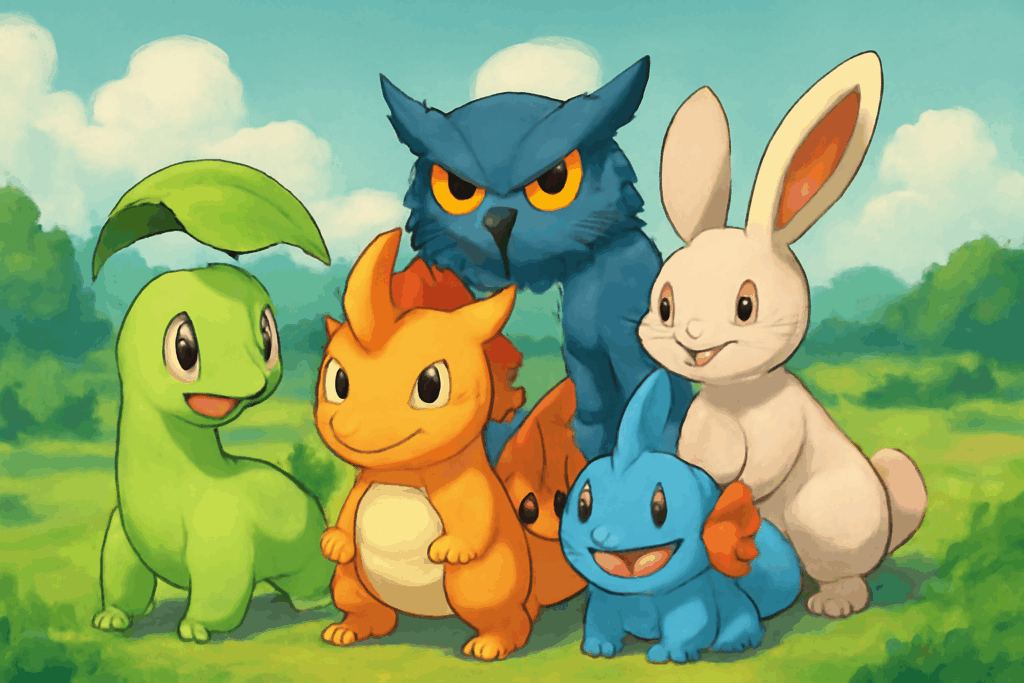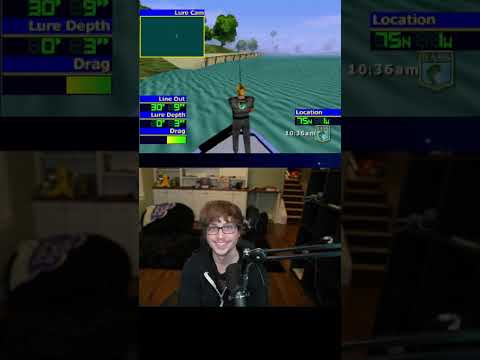
1. Dragon Quest Monsters: Joker
Platform: Nintendo DS
If Pokémon is a pop single, Dragon Quest Monsters: Joker is prog rock. It’s slower, deeper, and absolutely refuses to dumb itself down. You play a silent protagonist scouring a series of islands, recruiting monsters, and grinding like it’s your religion. This game takes the Pokémon formula and dials it up to eleven—but not by just copying it.
Where Pokémon is about catching ’em all, DQM: Joker is about breeding ’em smart. The monster synthesis system is legitimately deep—you fuse monsters together to create stronger ones, inherit skills, and build your team like a mad scientist breeding an army. This game doesn’t spoon-feed you. You either get deep into its mechanics or you bounce off hard.
The art direction is classic Toriyama—charming monsters with just enough weirdness to keep them memorable. Yes, you’ll see a lot of slimes. Yes, you’ll start loving them.
Gripes? It’s a grindfest, and the story is paper-thin. Also, it doesn’t explain itself very well. But if you ever thought, “What if Pokémon made me feel like a tactician instead of a zookeeper?”—this is your answer.
2. Monster Sanctuary
Platform: PC, Switch, PS4, Xbox One
Monster Sanctuary looks like it was made by a small indie team—and it was—but what it lacks in raw budget it makes up for with smart design and mechanical depth. Imagine if Pokémon had a baby with Metroidvania, and that baby actually turned out awesome. That’s this game.
It’s side-scrolling exploration, complete with platforming, puzzle-solving, and a full-blown monster battle system layered over it. You don’t just catch monsters, you train them with detailed skill trees, choose party synergies, and learn enemy counters. Battles are turn-based but emphasize combo chains, buffs, and team composition far more than Pokémon ever bothered to.
Best part? There are zero microtransactions, and the entire game is balanced around single-player progression. The devs didn’t try to nickel-and-dime you. They just made a smart, deep RPG and left it alone.
Is it perfect? No. The story is functional, not mind-blowing, and visually it’s clean but minimal. But if you want a game where monster collecting feels strategic, not just nostalgic, this is criminally underrated.
3. Monster Rancher 2
Platform: PlayStation (original), Switch, PC (port)
This one’s a classic, and if you’ve never played it, buckle up. You don’t catch monsters—you summon them from CDs. Yes, actual CDs. In the original PS1 version, you’d eject the game disc and swap in your music collection to see what monster it birthed. It was pure chaotic magic.
Now? The remastered versions let you search a massive music database instead, but the joy of RNG madness is still intact. One minute you get a cute bunny with boxing gloves, the next you get a pissed-off golem made of trees.
But this isn’t a battler so much as it is a monster life sim. You raise your creature, train it, scold it when it slacks off, and hope it doesn’t die of old age before making it to the big leagues. Yes, they can die. It’s weirdly emotional.
Combat is real-time-ish, based on positioning and built-up guts (basically stamina). It’s awkward at first, but like everything else in this game—it grows on you.
Flaws? It’s janky and obtuse, and the visuals are extremely 1999. But there’s nothing else like it. If Pokémon is about collecting, Monster Rancher 2 is about bonding.
4. Ni no Kuni: Wrath of the White Witch
Platform: PS3, Switch, PC, PS4 (Remastered)
You want Pokémon, but with Studio Ghibli aesthetics and a story that doesn’t insult your intelligence? Welcome to Ni no Kuni.
You play as a boy trying to bring his mother back to life in a world full of magic, heartbreak, and beautifully animated monsters. The world is lush, the music is sweeping (courtesy of Joe Hisaishi), and the creature designs are like if Pokémon were dreamt up by a nostalgic drunk wizard.
You catch and train familiars to fight for you in battle. Combat is a mix of real-time positioning and command selection—more active than Pokémon, but also more stressful when your familiar refuses to dodge an obvious attack.
The game starts slow, but when it opens up, it feels massive. And the whole thing is a self-contained, microtransaction-free experience with no grindy monetization traps.
My beef? The AI for your allies is often braindead unless you micromanage them. Also, some battles spike in difficulty for no reason. But still—Ni no Kuni is what Pokémon wishes it looked like on its best day.
5. Fossil Fighters: Champions
Platform: Nintendo DS
This one’s slept on hard. Fossil Fighters looks like a shovelware Pokémon clone, but it’s secretly a really clever take on the formula. You don’t catch monsters—you excavate fossils, clean them carefully (using your stylus), and revive them into dinosaurs called Vivosaurs.
The cleaning minigame is oddly addictive. You blow, chip, and drill at fossils without cracking them too much, and it becomes a weirdly satisfying core mechanic.
Combat? It’s a 3v3 turn-based system with positional tactics—you move Vivosaurs across a grid to optimize their abilities and minimize damage. It’s not rocket science, but it makes you think more than your average random encounter.
There’s a real Saturday-morning-cartoon vibe to the story and characters, but it works. And best of all: no in-game purchases, no gacha, no nonsense.
Only downside? It’s a bit kiddy in tone, and some animations are rough. But if you love dinosaurs and digging and strategy, this is one of the most unique monster battlers Nintendo ever published—and it’s 100% offline, fully playable, and fun.
Final Thoughts:
Pokémon’s dominance is earned, but if you’re ready to step outside its increasingly formulaic ecosystem and want games that challenge, respect your time, and skip the nickel-and-dime trash, these are it. They’ve got soul, substance, and most importantly—they’re complete games, not storefronts.


